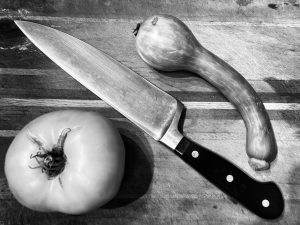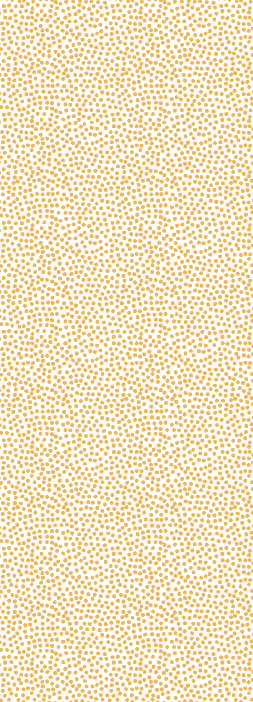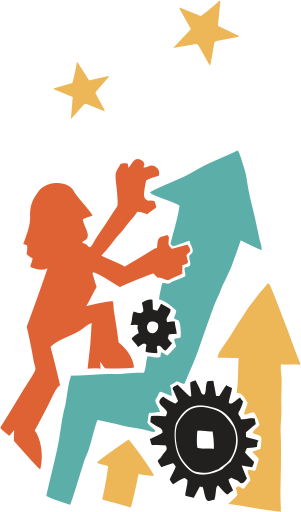More Life Lessons from Line Cooking
How food and cooking shaped the way I view the world

Many people, wanting to live their lives in more interesting ways, will decide to take the occasional cooking lesson here and there, all the while continuing to do whatever it is they do for a “living.” I went in the other direction. I started cooking for a living, and in the process, ended up with a whole lot of wonderful life lessons. As I wrote last week, the positive impact of food and cooking on my life was hardly intentional. Back when I took my first restaurant job washing dishes, I had no inspiring life ambition, nor any inkling of a strategic plan to shoot me forward towards “success.” It was just a coincidence that one of my college roommates happened to be working in a restaurant and seemed to sort of like what he was doing—at least he’d said enough good things about his job that joining him there sounded like a reasonable, short-term option for me. At the time, my interest was mostly to avoid getting sucked back into life in the Chicago suburbs. Without any big life plans, I decided to simply stay put in Ann Arbor.
In that sense, it really was just luck that I came into cooking for a living, but I know enough to know that there’s more to the story than just good fortune. Doors open, but more often than not, most of us—me included—find a wealth of good reasons not to walk through them. I could easily have fallen into the unhealthy version of the food business that’s getting so much bad press of late. Or I could have just quietly kept my head down and “done my job,” stayed for a year or so, and then gone back to Grad School like my mom wanted me to. I had any number of advantages that my middle-class, Jewish, learning-focused family afforded me. But still, as Dr. Angela Duckworth writes, “Our potential is one thing. What we do with it is quite another.”
You will all pretty surely have heard the Zen saying, “When the student is ready the teacher will appear.” Looking back all these years later, it’s reasonably safe to say that I was ready to learn a lot from food and cooking, and then to let those lessons change my life for the better as they continue to do today. When they offered me a job at that restaurant, I got to work, and all these years later, I can say with confidence that it’s worked out.
In last week’s piece I listed five things I’ve learned over the years from food and cooking:
The little things make a big difference.
Live every day with awe and wonder.
Make history come alive.
Honor and understand my connection with the natural world.
Stay humble.
Here’s a dozen more:
Start with purpose – My personal purpose when I took my first restaurant job was a simple and not-all-that-inspiring desire to pay my rent. I found, though, that the food world I was interested in was powered by purpose. While money mattered, the main focus for most folks I met was that of making a meaningful difference. I fairly quickly committed to supporting artisan producers in their efforts to stay in business, to preserving traditional foodways, and to helping the people we hired to develop meaningful lives of their own. Over time, purpose came to be embedded in almost every action I take. The other evening, I delivered some food to the table of a guest. He looked at me seriously—I’m pretty sure he didn’t know who I was—and asked, “So, what gives you purpose?” I was sort of caught off guard, but it was actually easy to answer: “Everything!” There’s purpose, I shared, in delivering great experiences to guests and coworkers; in teaching the history of the food and the cultures from which it comes; in trying to contribute to our community; in showing that we can slowly work to rebalance inequities in our ecosystem; in our drive to learn and to continue to improve in all we do. As Fyodor Dostoevsky, one of the Russian writers I studied in school, says, “The mystery of human existence lies not in just staying alive, but in finding something to live for.”
Foster a constant connection with beauty and art – Growing up, I would have naively and inaccurately told you that beauty and art were mostly things to be found in museums or magazines. Food and cooking taught me to embrace the exact opposite—that beauty is something we can each make, and take time to notice, all day, every day. Food and cooking gave me a chance to make Toni Morrison’s statement that “Beauty was not simply something to behold; it was something one could do,” come alive. This understanding didn’t happen overnight, but the appreciation and the elegant, down-to-earth artistry of our daily work has, for me, been transformative. As John O’Donohue said, “Beauty is not just a call to growth, it is a transforming presence wherein we unfold towards growth almost before we realize it. Our deepest self-knowledge unfolds as we are embraced by Beauty.” The beauty inherent in the food (and the people) we work with has most definitely helped my deepest self to begin to unfold. For that I am forever grateful.
Connect with the community – Stephen Satterfield, friend, food writer, co-host of “High on the Hog,” and founder of Whetstone magazine, said, “I think my work is a lot about building empathy. Because I try to connect people and ideas through food. I make media about food, not just because I love food, but because it’s a universal language that we don’t otherwise have access to.” I’m in full agreement with what Stephen has said so beautifully. Working with food has connected me with a wonderfully caring, collaborative, community that daily demonstrates generosity and a commitment to creating a more just and equitable world. While the headlines are mostly about people doing bad things to each other, the real world, the food world in which I work—both here at Zingerman’s and far beyond—is mostly about sharing and support. Customers, coworkers, suppliers, and supporters all over the world reprove to me the innate goodness of human beings.
Stay mindful – When local teacher Libby Robinson came to the Roadhouse a few years ago to teach mindfulness, she began by having each of us place a blueberry in our mouths and then, over a period of minutes, to pay close attention to every nuance of what we experienced. This practice of appropriately focused attention, she patiently explained, is at the core of mindfulness. I could only smile when she said it; tasting like this is what I get to do for a living. When I do my work well, the food brings me, most days every few minutes, back to mindfulness. When confusion starts to set in, or when I sense the early stages of overwhelm coming on, when the critical voices that still take up space in the back corners of my brain start to air their concerns ever more loudly, refocusing myself on the food helps me clear my head. To do my work well I need to taste and pay attention, all day, every day. It’s a state of being that helps keep me present. “Being” has an anagrammatic axiom in the word, “begin,” which, in turn, makes me wonder if really being fully alive is, in fact, to regularly find new openings, new beginnings, new learnings, over and over again. In that sense, food and cooking as we do it here have helped me to make “beginner’s mind” into a way of simply but meaningfully being present in the world.
Recognize the impermanence of everything – The title of Siftorde, the beautiful album of acoustic, finger-picked guitar by Senegalese artist Tidiane Thiam, translates to “remember.” Thiam’s new release, the liner notes say, is “a nostalgic ode to the temporality of the recording, and a plea for the songs themselves, whose survival demands they not be forgotten.” I feel the same way about the traditions of food and cooking that Tidiane Thiam feels about the music; they are both alive, present, and eminently real right now. And at the same time, they are treasures to be memorialized, foodways to be preserved for future generations to enjoy and benefit from. Every day, beauty appears; every day, beauty disappears. Nothing is given and nothing is permanent except, perhaps, impermanence. Our work at Zingerman’s is, in part, to help bring those traditions alive.
Learn emotional resilience – Anyone who has cooked the line through even a moderately serious lunch or dinner rush certainly has some of what Angela Duckworth calls “grit.” One learns quickly how to keep their head in the game, how to breathe through the panic that starts to set in when the tickets begin to pile up, how to re-ground when they hear the stress in the voices of some of their peers. Learning to push through is a life skill that every good line cook learns early on. It makes a BIG difference. As Dr. Duckworth says, “The highly accomplished [are] paragons of perseverance.”
Live with grief and grieving – I can’t say that I like loss and grief, but I learned to learn from it. Every time Tammie pulls out her tomato plants at the end of the summer it makes me sad. Friends like Daphne Zepos and Ig Vella have died. Loyal, longtime customers have passed away. Companies I cared deeply about have closed. Products like the carob honey from Giuseppe Avola I loved so much are no longer available (Giuseppe gave up beekeeping because of a bad back). This year alone, something like 20% of the country’s restaurants—including some I have eaten at many times—have closed their doors for good. Like everyone who lives long enough to experience it, food and cooking have taught me to live with this grief. The care and commitment I learned from cooking will lead, inevitably, to equally painful losses. Those losses, over the years, have helped motivate me to do more, to keep the memories of the past alive, while at the same time moving caringly into the future. As Suleika Jaouad writes, “Sometimes the only way to endure suffering is to transform it into art.”
Diversify your study of foodways – We are all existing in, and at the same time, influenced by our ecosystems. Which means that although my intentions were never to exclude, what showed up on the lists of recommended reading in the food world back when I started learning about food and cooking were mostly all sources of study of European foodways. Happily, I realized early on what was happening, and began to also pay attention to what I ought to have been learning about all along: the foodways of the Ojibwe people, the cooking of African Americans, the wholly unfamiliar culinary traditions of Sephardic Jews, and of other continents and cultures I’d previously known nothing about. Studying foodways is one of the easiest ways I know to enhance the diversity of our conversations, to honor others, to embrace the reality that contributions to our lives and learning are coming from everywhere. The food has helped me see how much every cuisine and every culture has so much to contribute. And because food and cooking, past and present, are one of the best ways to understand a culture, and hence people who come from that culture, cooking led me towards the diversity that I now know well is effectively integrated into every healthy ecosystem.
Seek a better understanding of equity and inequity – While it’s easy to blame bad guys and celebrate heroes, food and cooking taught me that most of us exist in some form of imperfect, compromised grayness. While I love the food we work with, I live with the reality that much of the country can’t afford it. I am faced daily with the real impact of racism in our industry; the fact that 90-percent of Black farmers were pushed off the land over the course of the last 150 years; that war and hatred have tragic impacts on millions of innocent human beings. Similarly, I see the struggles of women to establish themselves in leadership roles. I don’t have good answers, but I do have a much better understanding of the depth of these problems and an ever-stronger commitment to trying to help make the world a bit better through what we do with food every day. As Helen Keller taught, “Although the world is full of suffering, it is full also of the overcoming of it.” We have much to overcome, but cooking and community, I believe can, and do, make a difference!
Live with paradox – Peasant food becomes expensive when people get paid more to produce it. Simple flavors are also the most complex. I have daily access to amazing food, but I live in a world in which so many, sadly, have so little. The amazing contributions of African American cooking to American culinary culture, most of which of course came from the terrible dislocations and violence of enslavement. The incredible paprika focused cooking of Hungary is possible only because Columbus came to America—which resulted in millions of deaths, terrible disease, and destruction. The Piri Piri sauce I wrote about last week exists only because of the expansion of the Portuguese colonial empire. When I appreciate the cooking of the Sephardic Jews I’m reminded that it came to be what it is only because of the Inquisition and the forced expulsion from Spain. And, I’ve learned over and over again, I need to keep making peace with the imperfections and inequities of the moment in order to help things get better for the future.
Everything is interconnected – Climate change is altering the harvest times of olive oils. We can’t get the fresh sustainably harvested shrimp we had sourced six years ago from Mexico because of a U.S. ban on importation of Mexican shrimp as retaliation for the bad treatment of sea turtles. You name it, from tariffs to the fortunes of the U of M football team, pretty much everything that happens in the world impacts what we do and experience every day.
It’s never done – In this sense, cooking taught me about what I would now call mastery. Yes, I was raised to pursue perfection. Yes, I was filled with doubt about not getting there. But the reality of food and cooking, with impermanence in mind, is that it taught me to get out there and try again, and again, every day to get better. Last week’s meal might have been great, but we need to cook another one, just as great, or maybe even better, today. Perfection can’t be attained. Whatever goes wrong goes wrong—we can learn from it and move on. Or we can NOT learn from it and move on. Or we can stop moving. This is, I realize now, the kind of positive thinking that underlies continuous improvement. I like to hear kind words about work as much as anyone. But the drive for me to cook better, lead better, live better, has nearly always been internal—to do better, because doing better and doing it more meaningfully, is motivating. Sarah Lewis writes, “Simply put, success is focusing on the arrival and mastery is focusing on the reach, on this ever onward, almost, the creative process.”
In her book Composing a Life, Mary Catherine Bateson suggests that life, like food and cooking, is an “improvisatory art.” Maybe it’s this unexpected congruity that helped me learn so many wonderful things about how to live my life from food and cooking. As Bateson writes:
A good meal, like a poem, or a life, has a certain balance and diversity, a certain coherence and fit. As one learns to cope in the kitchen, one no longer duplicates meals but rather manipulates components and the way they are put together. The improvised meal will be different from the planned meal, and certainly riskier, but rich with the possibility of delicious surprise.
The life I have improvised, to which much credit goes to my coincidental decision all those decades ago to learn to cook the line, is most definitely very rich with the possibility of the sort of delicious surprises that Dr. Bateson is referencing. I have learned so much in all these years of working to understand food, cooking, and life. Because it’s never done, and because part of the purpose of this work, my work, is to honor the past by paying generously forward to the future, I hope to keep learning, keep living, and keep sharing both with line cooks and other folks for a long time to come. Thank you for the opportunity to do all that with you, so many great friends, customers, colleagues and coworkers, who are literally and figuratively, a community of very creative and very caring cooks.
*** This post is an excerpt from Ari’s Top 5, a weekly newsletter from Ari himself. Sign up to receive Ari’s Top 5 here!
 Back to Library
Back to Library





